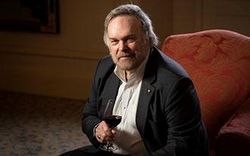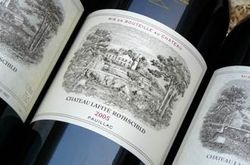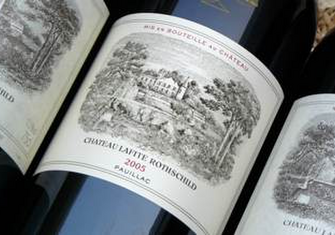
The fine wine market is often a slow-moving beast, particularly for investors. As the time-old process goes; one buys fine wine of a high pedigree, keeps hold of it as it matures and gets rarer, then sells it on at a later date, ideally at a healthy return. Yet every now and again ‘important events’ take place that have the potential to shake up the market significantly. One such event will take place next Tuesday, 30th June at approximately 5pm UK time. Robert Parker, the world’s most influential wine critic, will release his latest scores for the Bordeaux 2005 vintage, which he has previously called one of the greatest vintages of his career.
Parker confirmed this major retrospective tasting in February, at the same time as announcing that he was no longer going to score Bordeaux en primeur. This confluence of announcements marks a watershed in Parker’s career, defining a new strategy to his involvement in scoring wine, now once it has been bottled rather than engaging in the cut-and-thrust of barrel tastings. So what does next week’s rescore mean for the reputation of the 2005 vintage and more broadly, what does Parker’s changed role mean for the wine market as a whole?
Parker’s initial vintage reports were a curious mix of offering effusive praise, while sounding notes of major caution. On the one hand, he proclaimed 2005 to be ‘the greatest vintage produced during my 30-year career’, (this was before 2009 and 2010 of course) and ‘one of the greatest vintages of Bordeaux’ ever. Yet he went to lengths to outline some ‘sobering issues’, namely the high tannin content of the wines that he said made the northern Médoc wines more or less undrinkable for ten years.
When scoring the wines as they went into bottle, Parker has admitted, that he did so ‘on the conservative side’. He awarded a score of 96 points or above (the highest ‘Exceptional’ category in his scoring system) to only 36 of the wines. When latterly compared to the other two ‘greatest vintages’ of his career it becomes clear how conservative he was: Parker awarded 62 wines from 2009 and 52 from 2010 a score of 96 points or above. For the magical score of 100 out of 100, a meagre 2 wines from 2005 were deemed ‘perfect’; 10 from the 2010 vintage received this honour whilst it was awarded to an astounding 19 wines from 2009. There thus exists a major disparity between these great vintages. Tantalisingly, Parker wrote that in ten years, ‘I would not be surprised if they are even better than [my] laudatory comments suggest’.
Since Parker wrote those comments in 2008, the 2005 vintage has been somewhat overshadowed by the superb twin vintages of 2009 and 2010. However, since the end of last year focus has returned to the Parker’s first ‘vintage of the century’ of the 21st century. The first warning shot was fired by Parker himself in December 2014 when, as part of a vertical tasting of Mouton-Rothschild, he upgraded the 2005 vintage from 96 to 99+ points. This had an immediate effect with the wine rising in value by around 25% in the last six months. Hinting that 2005 more generally is acting as expected, Parker said in his tasting note, ‘the greatness of this vintage is increasingly apparent as the wines throw off their cloaks of tannin’.
In the meantime, other big-name critics have re-tasted the vintage and given it their glowing endorsements. The UK’s leading critic Jancis Robinson MW has described the vintage as ‘a joy’ and believes it to be better than both 2009 and 2010. Neal Martin, Robert Parker’s colleague at The Wine Advocate, confirmed in February that those potentially harsh tannins had resolved and declared the wines as ‘astonishing’. Indeed, he suggested to anyone who disliked the wines that ‘you may want to consider being teetotal’. A panel for Decanter magazine added their voice to those praising the vintage in early June. All we are waiting for, it seems, is Parker’s stamp of approval.

How can investors benefit from this rescore? In the shorter-term, by purchasing the wines that are best set to receive an upgrade from Parker. While none of us has a crystal ball, one can make a reasonable guess by looking at Parker’s previous scores and tasting notes and also comparing them to those of other critics. A prime example is Lafite-Rothschild 2005. Parker’s most recent score for this First Growth is 96+, the plus sign indicating that he believe the wine will possibly merit a higher score in the future. This is a wine that Jancis Robinson MW has tipped as one of the four best wines of the vintage, Neal Martin has rated it 98 points and American critic James Suckling has given it a perfect 100 points. All this suggests Parker should nudge the score up a few points which, as we have seen with Mouton-Rothschild, can have a big impact on price.
Another wine, La Mission Haut-Brion 2005, is potentially set for a perfect score. Parker has rated it 98+ points and in his note wrote ‘if everything comes together’ the wine ‘should merit a triple digit score’. A discussion on the message board on eRobertParker.com entitled ‘Guess the 100 pointers’ is keeping Parker-watchers busy with speculation.
The market has already reacted in anticipation of Parker’s rescore. The Liv-ex blog has singled out Palmer 2005, noting that it has risen in price by 30% since December 2014 owing to speculation that it may receive an upgraded score. The aforementioned La Mission Haut-Brion 2005 has also risen 22% in value in the last 6 months. Liv-ex has pointed out that the biggest mover has been Pomerol wine Lafleur 2005, rising 33% between November 2014 and May 2015.
Robert Parker’s influence on the market is in great evidence – indeed before he has actually done anything! Yet events such as this will become fewer and further between. Though he will still rate each new vintage as it is bottled and conduct vintage retrospective tastings (as well as ad hoc tastings) this will only be of great interest when he is reassessing great vintages such as 2005. If he is waiting ten years before rescoring older vintages, the next big one will be when he rescores the 2009 vintage in four years’ time. Will his health and energy hold up to do such a massive tasting? We sincerely hope so. But will his influence on the market? As the unannounced upgrade and price-jump of Mouton-Rothschild 2005 showed, an upgrade can now come at any time and it will have an effect. Parker is such a singular authority on Bordeaux that the whole world waits for his opinion. We believe his word will still hold sway. Yet it seems that Parker’s stamp of approval may itself become a rarer commodity. For today’s fine wine investors, the best thing they can do is hold Parker-approved wines with a long-term plan – but maybe, just maybe, the big man may decide that they are a bit better than he originally thought.
For more information call the Vin-X team on 0203 384 2262.

